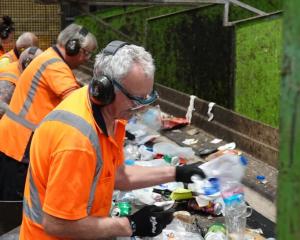Researchers in Christchurch are looking for volunteers to take part in the world's largest ever eating disorder genetic study in a bid to save lives.
The research team, led by psychologist and Eating Disorders Genetic Initiative NZ co-lead investigator, Jennifer Jordan, is looking for 3500 people who have experienced eating disorders to provide DNA.
The investigation will help identify genes that influence a person's risk of developing anorexia, bulimia and binge eating disorders.
“We are looking for any New Zealander, aged 16 and over, with first-hand experience of an eating disorder, to volunteer for this important genetics study,” Dr Jordan said.
“Analysing the DNA (genomes) from study saliva samples will allow us to pinpoint specific genes associated with eating disorders, which will help us to determine why some people experience eating disorders, and why some people living with eating disorders respond to certain treatments, while others do not.
“Comparing the saliva samples of EDGI participants to samples collected for other disorders will also help us to understand the common conditions co-occurring with eating disorders, including depression, anxiety, obsessive-compulsive disorder, substance abuse disorders and personality disorders."

“At present, we don’t fully understand why people succumb to an eating disorder," said genetics researcher and EDGI NZ co-lead Investigator, Professor Martin Kennedy, of Christchurch.
"EDGI will help us to tease out the biological components that put people at risk of developing an eating disorder. Identifying the genes involved with eating disorders will provide us with a much better understanding of the biochemistry and the pathways that predispose people to developing anorexia nervosa, bulimia nervosa or binge eating disorder. If we can understand this, then we've got a very real chance of developing better, more appropriate treatments.
“Decades of family and twin studies have confirmed that eating disorders run in families due to genetic factors," Prof Kennedy said.
Megan, a 23-year-old ‘health navigator’ from Christchurch, who helps people conquer medical and mental health challenges, spent eight years in the grip of a devastating eating disorder.
After being diagnosed with anorexia nervosa at the age of 16, her life soon spiralled out of control.
“It was like having both your best friend and your worst enemy’s voices inside your head, all day, every day," she said.
"The best friend 'voice' was always there to support and accompany me, albeit supporting terrible tendencies and habits.
"The worst enemy 'voice'. however, was abusive and derogatory, and said things to me that I would never utter, even to my worst enemy.”
Eventually, armed with the invaluable guidance and support of her parents, psychologist, dietitians and nurses, Megan developed the necessary coping strategies and determination to escape “a very dark, lonely and unhealthy place”.
To volunteer, visit www.edgi.nz or email edgi@otago.ac.nz.













